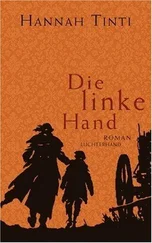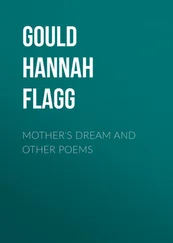“Well, they suffer because they don’t accept their fate. No one can fight the stars.”
Suriya widens her eyes and tilts her head, as if I’m being intentionally ridiculous. “Some nights it is bright and I say, ‘Look at the stars!’ But this is not making me suffer and die.”
“But you ask Lord Buddha for things — good health and protection and stuff.”
“But Lord Buddha is not stars. He is a person.”
“But now he’s dead.”
“He is not dead. He has got nibbana.”
“Well, wherever he is, don’t you think asking him for things is kind of like believing the stars have power over your life?”
Suriya shakes her head emphatically side to side. “When we ask Lord Buddha, we must remember him. And remember that he acted in a good manner and became like a god. That is karma.”
“And you think this is the main theme of Romeo and Juliet ?”
“Yes. For me.” She settles back in her chair and runs the end of her braid through her fingernails.
GAMBAWELLA
The rush of air on the motorbike is like the spritz of mist from the spray bottle that kept me company on hot summer nights in junior high. I’d stretch out in my underwear, listening to the Violent Femmes and Radiohead and Nirvana, making myself wait between squirts until the heat gathered at the white tufts of baby hair along my forehead, then crept downward and rouged my cheeks, prettily, I hoped. I am sitting on the motorbike between Ayya and Suriya, on our way to their parents’ home in a neighboring village. Suriya insisted I ride in the middle, lest I fall off the back on a fast turn. I take care to sit up straight, gripping the side of the bike, although Suriya keeps shouting over the wind, “El, you must hold to Ayya!” This seems such an intimate position to be in with a Sri Lankan boy that I worry Suriya may be pushing me toward her brother, fantasizing about a romance between us, her brother marrying an American girl, bringing instant success to her family. But the bike is fast and loud and unsteady, and it soon jostles away my concerns about other people’s imagined imaginings.
This is poya, full moon day, and so we stop at an ancient cave temple on our way. The entrance is crowded with pilgrims dressed in airy white skirts and sarongs. Suriya hands me a five-rupee coin to feed to a green-faced wooden man. I place the coin on his thick, curled tongue and watch it roll down his throat into a padlocked box. I try to laugh with Suriya and Ayya, but it’s hard to watch them spend money on gimmicks at a well-endowed temple. We add our sandals to the heap of flip-flops just inside ornate iron gates. The stone pathway is scorching. We run on the balls of our feet toward the gaping mouth of a cave. Women with slack, twiggy arms crowd our faces with lotus flowers to offer inside the temple. Ayya buys us each one. The seller peels back the outer leaves of the thick bud, making a star of deep purple petals.
The statues inside this cave that has been a place of worship for thousands of years remind me of Simpsons characters, their beatific smiles sardonic imitations of beatific smiles. Suriya stops short before a potbellied blue man, covered in coarse gray hair, with fangs like daggers. In one hand, he holds a scythe; in the other, the thin arm of a sexy, bare-chested woman with huge, black teardrops painted on her cheeks — an adulterous woman reborn in the hell realms, at the mercy of this hairy demon about whom Suriya used to have nightmares after she came here to worship with her parents when she was young. Her girlhood fear reminds me of my mother’s stories of growing up Southern Baptist — lying awake at night worrying that she had accidentally committed the Unforgivable Sin of blasphemy and was already doomed to eternal torment. Or worrying that she hadn’t committed any unforgivable sins and was doomed to be herself forever and ever, floating on a cloud in the sky, no escape. For my mother, Buddhism was the escape. She’ll be disappointed when I tell her how the religion is practiced in an actual Buddhist country, rather than by hippies and “recovering Christians,” as my mother likes to call herself. She mostly uses spiritual practices to fortify her desperate grip on “bliss experiences”—she actually calls them that — rather than to challenge her narrow idea of what she needs to be okay. Not that I’m finding many fruitful challenges in this cave myself. Suriya offers her flower to a fat, happy, cartoon Buddha, lovingly removing the stem and bowing her head as she lays the fanned-out petals in the Buddha’s lap. I try to imitate her, but I pull too hard on the stem and the lotus flies out of my hands, landing at a startled pilgrim’s feet. Suriya scoops it up and tosses it in the bucket of discarded stems. “Cannot give to Lord Buddha,” she whispers.
I’m glad when we are returned to the bright, dry day. Suriya asks if I like to climb mountains. I do, very much. We walk to the base of the mountain towering above the cave. A trail leads up through lichen-covered boulders under a canopy of waxy little leaves dancing and shimmering. “This is the sky palace,” Suriya says. “Okay, Akki?” Okay, Nangi. Ayya removes his shirt and shoes, and carries his water bottle in a backpack he’s fashioned out of string. He shows me how to put the straps of my sandals over my wrists so we can use our toes and fingers to clamber up the rocks. “We go,” Ayya cries and darts upward. “You are pig!” Suriya yells up at him. He pauses and grins down from a sheer-faced boulder.
“You are noodle!”
The two English sentences I’ve heard Ayya speak: Single rocks forever and You are noodle . This strangeness almost endears him to me.
For a long time, we climb in silence. The boulders are warm on my feet, the dirt cool. Suriya’s loud exhalations are a beat longer than mine. A green-and-purple bird swoops in front of us, pausing midflight to chirp and stare. I am lost in the spiritual joy I could not find in the temple. I once made the mistake of mentioning “spiritual joy” on a first date with an attractive bartender/musician and he replied, “Spiritual joy, huh? I think that phrase is the reason my brother started doing heroin.” But most purely good things sound sappy in description — a kind of punishment, maybe, for insisting on confining goodness in words. The bartender/musician begged me to marry him while we were having sex and then never called me again.
—
It’s late afternoon when we resume our journey. The triumphant drone of the bike’s engine dies in a yard filled with decaying blue and pink plastic bags that seem more real than the dirt they rest on. Suriya’s home is two-story and concrete, one of the few large houses we’ve passed on the two-hour ride from Hashini’s. Aside from a few tenacious yellow patches, the building has shed its paint. A metal sign that says BODHI BAKEHOUSE is propped against the side of the building, spilling its advertisement into a pile of crushed water bottles. A sliding glass door cracked into a jagged web of prisms opens to a large, barren room on the ground floor. The only furniture is an old swivel chair with a dangerously tilted seat.
“Your home is big,” I say.
“So big, yes. But now it is broken.” Suriya’s voice is loud and quick. “You know about eye poison, Akki?” Suriya’s family used to run a bakery and restaurant that made them sort of rich. Their neighbors had eye poison, the unconscious ability to cause harm through envy. The restaurant started to lose money, then collapsed completely. Suriya thanks god for her brother’s army job, but still it is very difficult; the money is not enough for so many people. “I have more works,” she says, and leads me up the stone staircase on the outside of her house. “My mum is sick so she must not clean.”
Читать дальше












